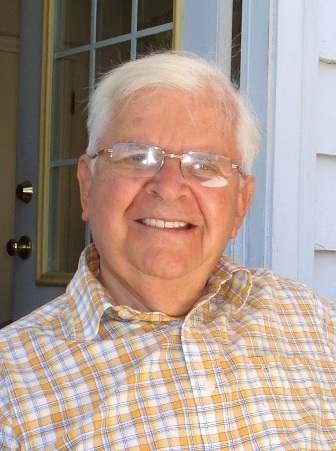神から霊的な経験へ
[toggle]From God to Spiritual Experience[/toggle]具体的行動が重視される流れのただ中で、もう一つの運動が起こった。それは、人との関係にばかり心が向くのにストップをかけ、神との関係に再び私たちを引き込む新しい霊的ロマン主義だ。ペンテコステ運動は20世紀へ入る頃に各地で爆発的に盛んになり、1960年代にカリスマ的キリスト教として主流な教派に仲間入りした。神が聖霊として訪れたことや、直接的な神との触れ合いを、男も女も喜んだ。その始まりは十分(あるいはそれ以上に)勢いのあるものだった。人々は神を望み、集会へと押し寄せた。彼らには神への渇望があった。
[toggle]In the midst of this drift toward action, another movement arose, a new spiritual romanticism that tried to check our fascination with the horizontal and re-engage us with the vertical. The Pentecostal movement exploded on the scene at the turn of the 20th century and made its way into mainstream churches as charismatic Christianity beginning in the 1960s. It began well enough—more than well enough—as men and women enjoyed the immediate presence of God as he came to them in the Holy Spirit. People came to these meetings in droves because they wanted God; they yearned for God. [/toggle]
ペンテコステ派教会の礼拝。手を挙げて異言で祈る。
しかし間もなく、多くの人にとっての神への渇望は、(霊的)経験への熱望に変わってしまった。神の代わりに、人々は神の賜物を経験することを望み始め、指導者もまたそれを求めるようになった。異言を語ることは、生ける神との対話手段というより、自分の霊的状態を証しするためのものとなった。
[toggle]But once again, it didn’t take long for the yearning for God to turn into a longing for an experience for many. Instead of God, people began wanting, and leaders began demanding, that people experience the gifts of God. Tongues became not so much a means of conversing with the living God as a sign of one’s spiritual condition. [/toggle]信じてほしいのだが、私には彼らを糾弾するつもりはない。私自身、特別な霊的体験を求めてきたし、得てきた。それは正直に言って、神そのものではなく、ある種の感情や精神状態を求めるものだった。そのような異次元の体験をしたことのある人なら、その魅惑には覚えがあるだろう。
[toggle]This is not throwing stones, believe me. As a person who has been blessed with experiencing some extraordinary spiritual gifts, I have longed for a spiritual experience for its own sake, for a certain type of exquisite feeling and emotion—and truth be told, I wanted this more than I wanted God. Most people who have experienced such extraordinary gifts know of this temptation. [/toggle]聖(きよ)さから徳、そして正義へ
[toggle]From Holiness to Virtue to Justice[/toggle]今日、私たちは、ホーリネス運動の現代的表現、道徳的生活への懸念を見ることができる。かなりの数の福音伝道者が、倫理や人格形成に意識的になってきた。彼らは「何をすべきで、何をすべきでない」というリストを作ったり守ったりするより、愛、喜び、平和、忍耐など、模範とされるような人格が形成される習慣や規律に関心を持っている。
[toggle]Today we also see a contemporary expression of the holiness movement and its concern for the moral life. A fair number of evangelicals have become fascinated with virtue ethics or character formation. They are less interested in creating or adhering to a list of dos and don’ts than how habits and disciplines can shape a person’s character so that we are exemplified by love, joy, peace, patience and so forth. [/toggle]これは私にとって有益に思える展開なのだが、キリスト教倫理学者が指摘するように、美徳を追求することには常に、自らの進歩に目を向ける誘惑があり、やがてそれは失速することがある。そこで命題となるのは自らの変革であり、神も、その目的を達成するための手段として使われてしまいがちだ。
[toggle]This is to me a salutary development, but again as Christian virtue ethicists themselves acknowledge, such an emphasis can get stalled since there is a constant temptation to look at one’s self and one’s progress as one pursues the virtues. The emphasis is on my transformation. God too easily becomes a means to my end. [/toggle]新たに再発見された社会的正義への情熱と倫理観は、多くの点で並行しているが、それが個人ではなく地域社会に重点が置かれていることを理解するのは、それほど困難ではない。極端な例では、福音派でも批判理論が用いられることもある。特に人種やジェンダーというテーマにおいては、権力の問題が表面的にも核心的にも取り上げられる。多少でも歴史の知識がある人なら、こういった権力や階級、経済学がすべての側面で影響力を持つことを知っている。
[toggle]It’s not too much of a stretch to see that the newly rediscovered passion for social justice in many ways parallels virtue ethics but with the emphasis on the community rather than the individual. In its more extreme forms, we hear evangelicals adopting critical theory, in which power dynamics are front and center, especially in race and gender relations. Anyone with even a brief familiarity with history already is aware of these dynamics, as well as the role that class and economics can play in all this. [/toggle]マルクス主義が階級をすべてと結びつけて考えたのと同じように、批判理論には、すべてを権力構造と結びつけて考えるという一つの課題がある。もう一つの課題は、自らは批判を受けつけないということだ。同意しない者は誰であれ、「権力構造に閉じ込められた者」と見なされる。
[toggle]One problem with critical theory is that everything is about power, just as class was everything with Marxism. Another is that it is impervious to criticism—those that disagree are considered trapped in power dynamics. [/toggle]倫理観と同じように、社会的正義への情熱は、次の3つのあり方で神を忘れさせることがある。そして、最初にそのことに気づいたのは、社会的正義の支持者自身だったというケースも多い。まず、人々の間での正義の情熱や、時には怒りが高まって、神の正義や義認への情熱を覆い隠してしまうことだ。次に、「神の国をもたらすことが自分たちの仕事だ」という意識が強まってしまうこと。3つ目は、社会的正義の働きには神が重要だという認識がある時に、神は、その目的達成のための手段になってしまうことだ。たとえば、「祈りは、社会的正義に情熱を傾けている私を支える」というふうに。
[toggle]But as with virtue ethics, passion for social justice is tempted to forget God, in particular in three ways, which many social justice advocates are the first to acknowledge: First, there is increasing passion, and often anger, regarding justice between people, eclipsing the passion for justice, or justification with God. Second, there is an increasing assumption that it is our job to bring in the kingdom of God. Third, when there is an acknowledgment that God is critical to the work of social justice, God can become a means to an end. For example, prayer helps sustain my social justice efforts, the thing I’m really passionate about. [/toggle]社会的正義への情熱を新たに持てたことには感謝するしかない。社会のあらゆるところを蝕む不正に対して心が沈まないクリスチャンは、聖書の神を本当に愛しているとは信じがたい。しかし敵(サタン)は、知らず知らずのうちに神がしかるべき場所に置かれるよう、私たちの情熱をねじ曲げる方法を知っているのだ。
[toggle]One cannot but be thankful for our newfound passion for social justice. Christians whose hearts don’t sink at the injustices that infect every society—well, it’s hard to believe they can truly love the God of the Bible. But the Enemy has a way of twisting our passions so that God slowly gets put in his place. [/toggle]神から霊性へ
[toggle]From God to Spirituality[/toggle]私たちに共通する福音派的生活のもう一つの特徴を特記すべきだろう。それは、この文章の根本を揺るがすように思えるスピリチュアル・ムーブメント(霊性運動)のことだ。これも、多くの称賛すべきものを持っている。たとえそれが福音派のごく一部に関係することだとしても、少なくともそれが皆無でないことに感謝するほかない。しかし、その関心は小さく、また散発的だ。福音派の人々が神をより深く知り、愛するための努力において、霊的訓練を実践することにあまり関心がないことを、この事実は示している。
[toggle]One more feature of our common evangelical life needs to be noted: the spirituality movement, which seems to undermine the thesis of this essay! Again there is much to be lauded here, and one can only be grateful that, even if it engages only a small percentage of evangelicals, that is not nothing. But the fact that the interest is small and sporadic suggests that evangelicals are not much interested in practicing the spiritual disciplines in an effort to know and love God more deeply. [/toggle]
福音派の霊性の神学のパイオニア、ジェームズ・ヒューストン(リージェント・カレッジ初代学長)
ここでも、私たちのあらゆる努力と同じような誘惑が見られる。しかも、この運動のリーダー自身、「霊性」が人気を得ることを恐れているのだ。霊的訓練を実践しようとした人なら全員、この危険性を知っている。その誘惑の一つ目は、私たちがそれをどう理解するにしろ、「霊的になりたい」という気持ちを持ってしまうことだ。神との出会い以上に、ある種の宗教心を欲してしまう。二つ目は、実践している訓練の数と、それに費やした時間の量を、自分の霊的状態の指標として数え始めてしまうことだ。これは非常に愚かなことだが、先述したとおり、この訓練を実践しようとしたことがある人なら誰でも、私が何について話しているか分かってもらえるだろう。
[toggle]The same temptations apply here as to every one of our efforts—and again, it’s the very leaders of the movement who worry about “spirituality” becoming popular: All of us who have tried to practice the spiritual disciplines know these hazards. One temptation is to want to become spiritual, whatever we conceive that to be; we want to become a certain type of religious person more than we want to meet God. And, second, we start counting the number of disciplines we’re practicing and the amount of time we give to them as markers of our spiritual condition. This is all so silly, but as I said, anyone who has attempted to practice the disciplines knows whereof I speak. [/toggle]友人の経験談が、今日の私たちの混乱を端的に表している。
[toggle]A friend’s experience drives home our confusion today. [/toggle]「神を自らのすべて、目的のすべてとし、『涸(か)れた谷に鹿が水を求めるように』(詩編42:2)それを追い求めてきた」と、彼は自分のことを私に説明した。そのため彼は、朝と就寝時など、1日の時々や、時には日中の忙しい合間を縫って一度か二度、祈ることで生活に折り目をつけようとした。祈りの時間には、静かな瞑想と短い祈りだけでなく、詩編や他の聖書箇所を読む時間を持った。それは10〜15分程度のものだったが、自分はそれを楽しみにしていると彼は言う。それはチェックボックスを埋めていくような楽しさではなく、ゆっくりと、しかし確実に神への愛が成長していることを感じられる楽しさだ。
[toggle]He explained to me that, indeed, he has been striving to make God his be all and end all, one for whom he pants after as a deer after water. So he’d given himself to punctuating his day with prayer, especially morning and at bedtime, and if possible once or twice during the middle of his busy days. The prayer time includes reading the Psalms and other Scripture, as well as quiet meditation and brief prayer. All of this lasts no more than 10 to 15 minutes, but he says he finds it is a practice he enjoys, not in the sense of checking off a box but in the sense that he is slowly but surely finding that his love for God is growing. [/toggle]しかし彼はまた、自分の心がどれほど混乱したままかについても話してくれた。最近、プライベートな用事のために仕事を早退したとき、家で祈りの時間を持とうと決め、いくつかの書類を取りに行った。しかし、30分後に車に戻ったとき、家を出る前に10分だけ祈りの時間を持とうと考えていたことを完全に忘れていたことに気がついた。
[toggle]But he also told me how confused his heart remains. One day recently he left work early to take care of some personal business. On the way home, he determined to have a prayer time at home as he picked up a few papers. Yet he found himself in the car 30 minutes later, having completely forgotten about his intent to pray for a mere 10 minutes before he left home. [/toggle]なぜ、ほかの予定のために頭をいっぱいにしていたのだろうか。なぜ「やることリスト」に考えを巡らすばかりで、祈りや神を忘れてしまったのだろう。
[toggle]Why was he so intent on getting these tasks done that they consumed his mind? Why did his to-do list fill up his imagination rather than prayer or God? [/toggle]そしてなぜ、(特にやることがたくさんある日には)座って祈るのを心の中では疎んじていたのだろうか。彼は不思議に思った。どうして、祈ることを「絶対に必要なこと」の一つとして考えないのだろう。神がすべての命と喜びの源であり、私たちの最も深い欲求を最も深く満足させるのなら、なぜそれを楽しみに思わないのか。神を愛し、望んでいるなら、自分の日常と精神が、他の多くの「愛」や「望み」によって形作られているのはどうしてだろう。
[toggle] And why is it, he also wondered, that many mornings he notes a reluctance in his heart to sit down to pray, especially when there are so many things to get done? Why doesn’t he consider prayer one of these absolutely necessary things to do, or why doesn’t he look forward to it if, in fact, God is the source of all life and joy and the deepest satisfaction of our deepest desires? If he loves and desires God, as he says he wants to, why do the loves and desires of so much else actually shape his day and his heart? [/toggle]そこで彼はある結論に至った。「つまるところ、私は即物主義の無神論者なのだ。神を、何か素敵な機能を持ったツールのように扱うことで、これまでの人生の大部分を過ごしてきた。時間が余り、本当に欲しいと思った時にだけ神を求め、そうではない時には、まるで神が生ける存在ではないかのように生きていても、私は幸せなのだ」と。
[toggle]He concluded, “When it comes down to it, I’m a practical atheist. I’ve learned to live most of my life as if God is a nice add-on—when I have time and when I really want him—but otherwise I’m content with living as if he is not a living presence.” [/toggle]序文で述べたように、私はこの友人のジレンマに深く通ずるものを感じている(「即物主義の無神論者」という言葉は、アンソニー・ブルーム著『祈り始める』から来ている)。多くの友人との会話を振り返っても、このような経験をしているのは一人ではない。私たちが神を完全に忘れてしまったとは思えないが、私たちの「精神的アルツハイマー病」は危険なレベルにまで進んでいる。
[toggle]As I noted in the introduction, I deeply identify with my friend’s dilemma. (That phrase “practical atheist” is from Anthony Bloom’s Beginning to Pray). In talking with many friends, I’d say we’re not alone. So it’s not quite true that we’ve completely forgotten God. But our spiritual Alzheimer’s has progressed to dangerous levels. [/toggle]恵みの言葉に耳を傾けてみよう。これは一般的な人間の状態であり、神にとって驚くようなことではない。神は、自らの目的のためにご自分を利用しようとする私たちとすら、共に働きたいと思ってくださる方だ。私たちが自分の人生や責任、地上での欲望に気を取られているせいで、神をないがしろにすることは、それほど重大な罪ではない。罪悪感と恥で自らを鞭打つ必要はない。特にこの文章と連載は、大がかりな非難としてではなく、一石を投じるため、より大きな対話を始めるために書かれている。
[toggle]To let grace have a word: This is a common human condition and certainly no surprise to God, who is still willing to work with us despite our attempts to use him for our ends. It is not remarkably evil that we are so distracted by life and responsibilities and earthly desires that God takes a decided back seat. We needn’t whip ourselves with guilt and shame over this. This essay in particular and this series is intended not as wholesale condemnation but as a wake-up call, or at least the start of a larger conversation. [/toggle]福音派のクリスチャンは、これらのことに特別な真剣さを持って取り組む義務があると私は思っている。私たちは、イエスとの個人的な関係を持ち、それを楽しむことを強調する信仰スタイルを実践することに誇りを持ってきた。そして私たちの中には、まさしくそれを実践している人がたくさんいる。しかし上述したように、総体としての私たちの運動は退化したと思う。私たちの大多数は、縦の関係を犠牲にし、横の関係を強調するパターンに陥ってしまったのだ。
[toggle]I think it is incumbent on evangelical Christians to take this with special seriousness. We have rightly prided ourselves in practicing a form of faith that emphasizes the personal relationship with Jesus one can enjoy. And among us are many who can be characterized in just this way. But overall I believe our movement has degenerated in ways I have described above, with the vast majority of us falling into patterns that emphasize the horizontal at the expense of the vertical. [/toggle]昔の賛美歌(インマヌエル讃美歌439番「よみがえりたり」、新生讃美歌〔89年版〕223番「救い主にぞ我は仕えん」)で歌われているように、かつての私たちは、まるで「神と共に歩み、人生の狭い道で話をする」ような、神の存在によって特徴づけられた生活を送っていた。今日、私たちは、政治(右であれ左であれ)、投票パターン、倫理的偽善、唯物論との妥協、教会開拓のテクニック、成長する教会、起業家のようなスキル、そして自らと社会とを改善するための絶え間ない行動主義で知られるようになってしまった。神との生き生きとした個人的関係や、詩編の著者や多くの人々が聖書や歴史の中で持ったような心と精神に満ちあふれた関係性を、今日の私たちの間で見つけるのは難しい。
[toggle]We were once people whose lives were characterized by the presence of God, as if we “walk with him and talk with along life’s narrow way” as the old hymn puts it. Today, we are known for our politics (left and right), our voting patterns, our ethical hypocrisy, our compromise with materialism, church-planting techniques, growing churches, entrepreneurial skill, and a relentless activism to improve ourselves and our society. A living, vital, and personal relationship with God, a relationship that floods the heart and mind as it did the psalmists and so many others in the Bible and in our history—well it’s hard to find that among us today. [/toggle]執筆者のマーク・ガリは米国「クリスチャニティー・トゥデイ」の編集長。
本記事は「クリスチャニティー・トゥデイ」(米国)より翻訳、転載しました。翻訳にあたって、多少の省略をしています。
出典URL:https://www.christianitytoday.com/ct/2019/may-web-only/how-we-have-forgotten-god.html

